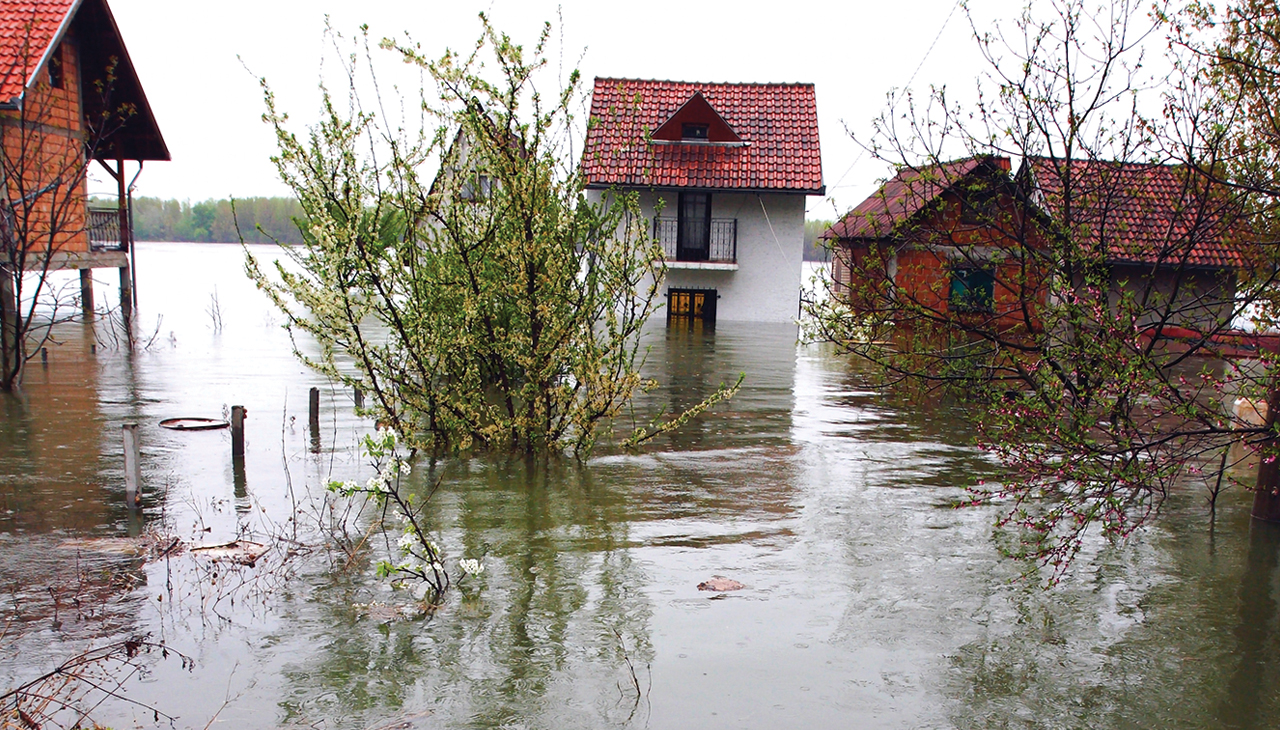
As we approach this year’s storm season, remember Ida’s lessons
Local leaders must learn to think at the watershed scale to fix our region’s flooding woes
Hurricane Ida made landfall late last August, leaving a path of destruction that blanketed parts of Southeastern Pennsylvania and New Jersey. The storm destroyed homes, turned roadways into rivers and killed thirty people. Several months later, communities are still recovering.
A recent roundtable in the NJ Spotlight, for example, put the inevitable question before state leaders: how can we get ahead of the looming stormwater crisis posed by climate change?
Most systems in our states weren’t built to withstand the kind of flash floods that have become common. Riverbanks and drainage systems get pushed beyond their limits. Antiquated combined sewers flush raw waste into basements and streams. Homes with flood damage become havens for mold that cause long-term illness.
Other threats are less visible. Repeated, contaminated flooding compromises the role of the Delaware River and its tributaries to supply clean drinking water, support wildlife and vitalize local businesses.
If there’s one lesson the American Littoral Society has learned working in the Delaware River Watershed Initiative (DRWI), a network of organizations linking arms across New Jersey, Pennsylvania, Delaware and New York State to solve today’s water challenges, it’s that we have to think like a watershed to find solutions that work for everyone for the long term. It means thinking about how actions upstream affect communities downstream. It takes treating government as a tool and not an obstacle. It involves making investments together with other states and municipalities that see nature, community and the economy as interdependent.
New Jersey in particular is on the right track with its Climate Change Resilience Strategy. State policymakers can and should bring federal funding home to local townships to help fix long neglected sewers and streets.
Stormwater utilities can help communities pay for critical wastewater upgrades more reliably and predictably, rather than surprising residents with unexpected rate hikes. And state agencies are already teaming up with watershed experts like those from the DRWI to help overburdened town and city leaders to “waterproof” their master plans.
Some of the most powerful infrastructure fixes are green. New Jersey and Pennsylvania need to keep investing in reforestation, as planting new trees in place of dead ones, and caring for wetlands, all provide powerful defense against flooding. Trees help soak up water, slowing down floodwaters during serious storms (they’re also the best carbon-absorbing technology around). It should also become second nature to think about the balance between “pervious” and “impervious cover” as we build our neighborhoods. Surfaces like parking lots and driveways can’t absorb water. Water that doesn’t soak into the ground contributes to flooding. Woods, parks, rain gardens and other “green infrastructure,” however, act as natural sponges.
No matter how our states and cities address our new normal, we must remember that justice is paramount. We need to ensure that, when money is on the table for this climate resiliency work, the people most impacted—those who are sidelined due to race or income—get the first say in how it’s distributed. True solutions don’t leave anyone behind.
RELATED CONTENT
New Jersey and Pennsylvania know the path forward on flood resilience. And it has friends in the Delaware River Watershed initiative to light the way.
Now’s the time for leaders and residents to join forces and move full speed ahead.
To learn more about the Delaware River Watershed Initiative, visit 4states1source.org
Author: Tim Dillingham | @littoralguy
Executive Director, American Littoral Society
Member, Delaware River Watershed Initiative











LEAVE A COMMENT: